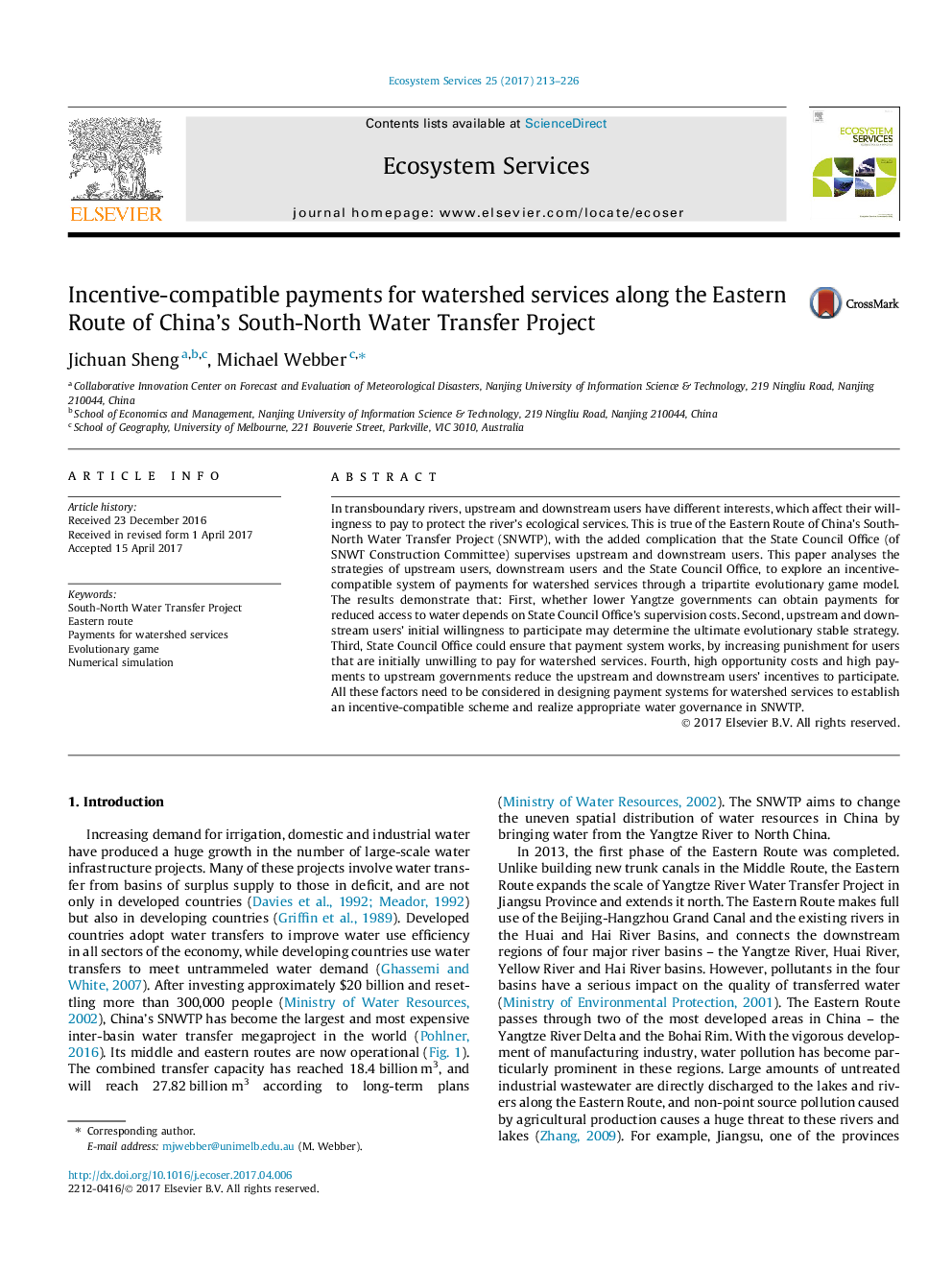| Article ID | Journal | Published Year | Pages | File Type |
|---|---|---|---|---|
| 4761619 | Ecosystem Services | 2017 | 14 Pages |
Abstract
In transboundary rivers, upstream and downstream users have different interests, which affect their willingness to pay to protect the river's ecological services. This is true of the Eastern Route of China's South-North Water Transfer Project (SNWTP), with the added complication that the State Council Office (of SNWT Construction Committee) supervises upstream and downstream users. This paper analyses the strategies of upstream users, downstream users and the State Council Office, to explore an incentive-compatible system of payments for watershed services through a tripartite evolutionary game model. The results demonstrate that: First, whether lower Yangtze governments can obtain payments for reduced access to water depends on State Council Office's supervision costs. Second, upstream and downstream users' initial willingness to participate may determine the ultimate evolutionary stable strategy. Third, State Council Office could ensure that payment system works, by increasing punishment for users that are initially unwilling to pay for watershed services. Fourth, high opportunity costs and high payments to upstream governments reduce the upstream and downstream users' incentives to participate. All these factors need to be considered in designing payment systems for watershed services to establish an incentive-compatible scheme and realize appropriate water governance in SNWTP.
Related Topics
Life Sciences
Agricultural and Biological Sciences
Agricultural and Biological Sciences (General)
Authors
Jichuan Sheng, Michael Webber,
